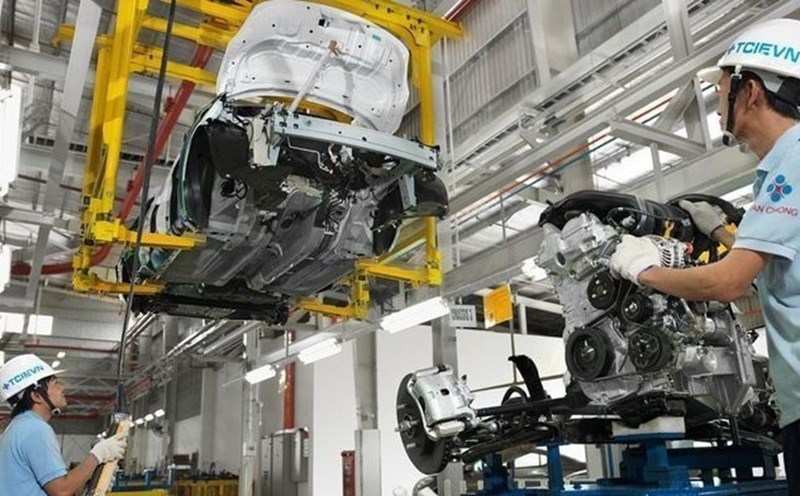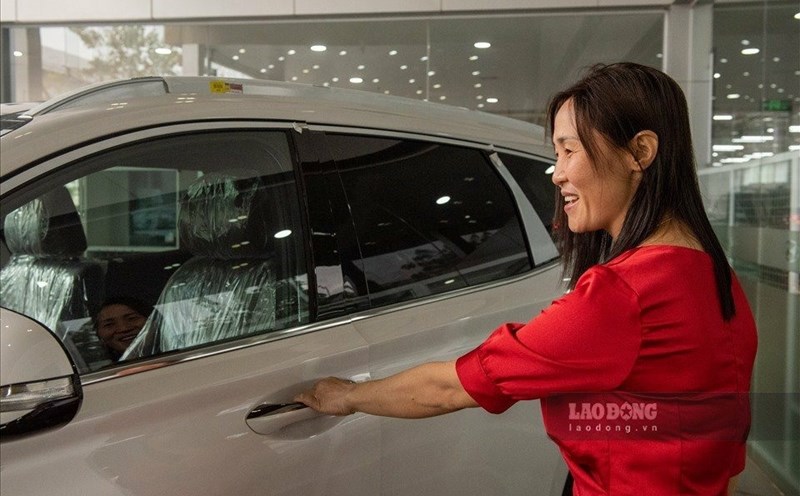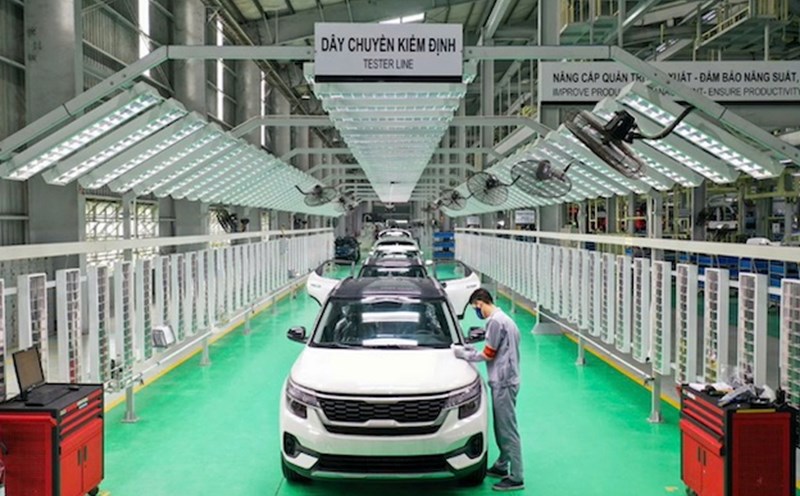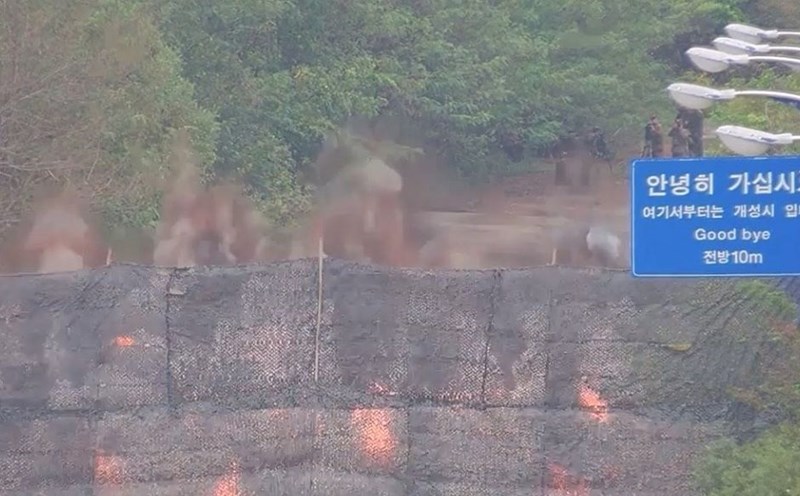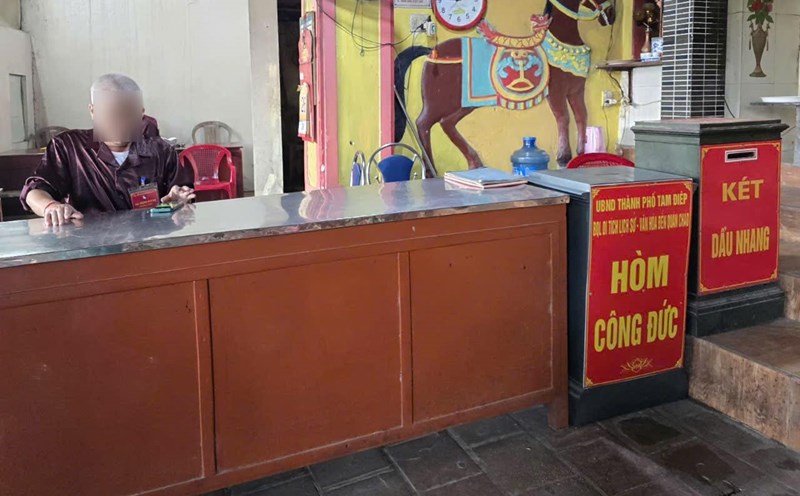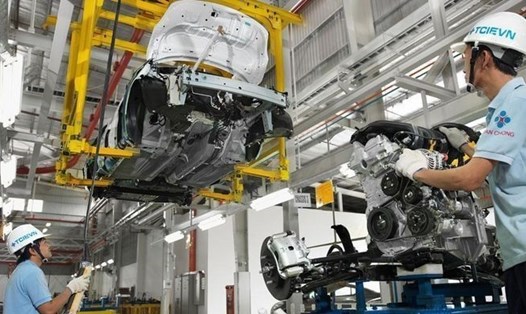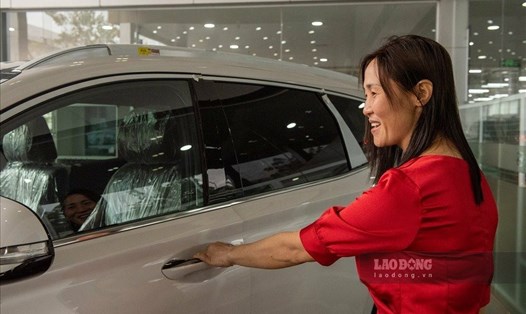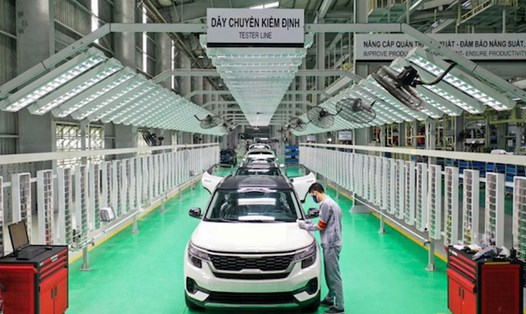The reduction policy is ineffective, the take-back policy is outdated
The Ministry of Finance recently submitted a report to the Government, proposing not to reduce registration fee collection (LPTB) due to concerns that continuing to reduce registration fee (LPTB) as in the draft Decree would violate commitments. internationally, leading to the risk of sanctions or retaliation from countries to which Vietnam exports goods. Therefore, it is necessary to develop a plan to proactively respond.
Expressing his opinion on this issue, Dr. Chau Dinh Linh - Economics expert, lecturer at Ho Chi Minh City Banking University, the management agency needs to consider and carefully consider the policy of reducing LPTB revenue.
Dr. Linh said: "Looking back at the first implementation of the policy to reduce the tax rate, the whole market welcomed it, but after the second and third reductions, this effect gradually decreased. The budget continued to decline every year. trillion VND but the car purchase rate did not increase as expected. Dealers also cut promotions, so when compared, it can be seen that the discounts are not significant.
Therefore, we need to carefully consider the pros and cons. Recently, the Ministry of Finance has also considered additional factors of international commitments, comparing the benefits of automobile assembly and manufacturing units in Vietnam with the benefits of countries that export cars to Vietnam. From there, we can see that we may have to face litigation."
Worth mentioning, Dr. Linh said that the 4th reduction in LPTB revenue will raise questions about whether there will be a 5th and 6th reduction. It is worth mentioning how long the policy will last and how long the interruption will be.
Experts say that when policies are not stable and have no long-term orientation, they will cause many difficulties. If they want to create favorable conditions for the auto industry, management agencies need to consider fiscal policies. longer term.
Sharing the same opinion, according to Dr. Nguyen Ngoc Tu - Lecturer at Hanoi University of Business and Technology, the policy of reducing LPTB fees needs to be reviewed for effectiveness. Worth mentioning, Dr. Tu said that the LPTB collection policy is also outdated and needs to be revised.
"When the two regions of the country were unified, private cars began to appear. To generate revenue for the budget and in accordance with international practices, the Government issued a Decree on registration fee collection. At that time , motorbikes and cars are luxury items, high value goods. Therefore, in order to limit consumption due to limited roads in the past, registration fees were set very high from 12-15%. Up to now, Hanoi is still collecting the LPTB rate of 12%.
According to experts, by definition, fees and charges are to compensate for part of the costs that the State has to spend on a certain activity. For example, when people register their birth, the State must use good paper to make birth certificates for their children, print them, store records, and have data to look up, so the State must collect a portion and that is called is the fee. Registration fees are also similar. The state saves vehicle information and creates data for easy reference. The current LPTB tax rate for cars is very high. A car has a mid-range price of 800-900 million VND, if LPTB is collected, the fee is more than 100 million VND. I propose to review the registration fee policy and adjust the fee to only about 6%" - Dr. Tu said.
Towards Net Zero
According to the Prime Minister's commitment, by 2050 Vietnam must reach zero emissions (Net Zero). Accordingly, we have a clear roadmap divided into stages.
Supporting this policy, many experts believe that the Government needs to carefully consider reducing the LPTB fee for gasoline-consuming vehicles, avoiding going against the Net Zero roadmap set out.
In countries around the world, many countries and regions have approved policies banning gasoline vehicles and issued preferential policies for electric vehicles.
For example, in the EU, from February 2023, the European Parliament officially passed a law banning the sale of cars running on gasoline and diesel in the European Union from 2035, in order to accelerate the transition to electric vehicles and prevent climate change. climate change.
Under these landmark rules, by 2035, car manufacturers must cut CO2 emissions from new cars sold by 100%. This would make selling new fossil fuel-powered vehicles within the 27-nation bloc impossible. Many European car manufacturers have announced investments in electrification.
Or in China, to encourage people to switch to using electric cars and promote the new energy auto industry, the Government of this country has issued a series of preferential policies such as: Subsidies for businesses based on their business. sales number; Subsidize prices for electric cars based on battery capacity; Subsidizing money for customers to buy electric cars; Tax reduction for electric cars; Support the development of electric charging infrastructure; Reduce fees for electric vehicle users...

